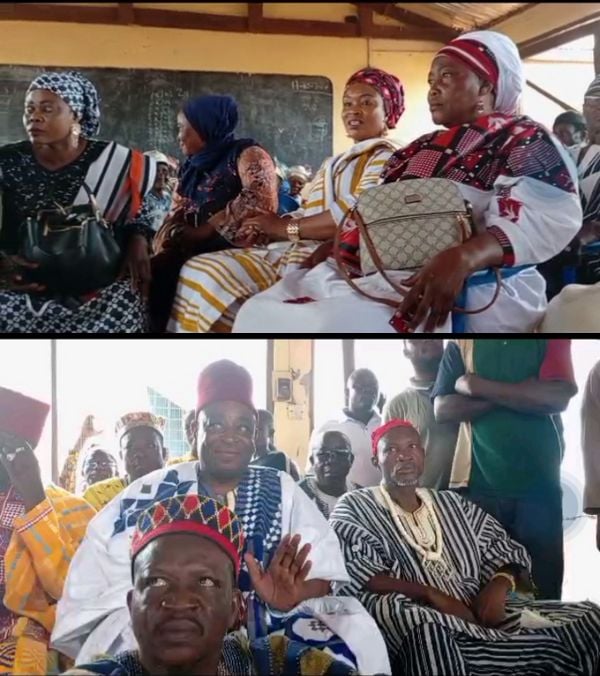The Gambaga alleged witches camp, situated in the East Mamprusi Municipality of the North East Region of Ghana, has been the focus of increased attention and advocacy for the rights of its residents. Recently, a delegation from the Mossi community of Burkina Faso visited the camp to raise awareness and promote cultural understanding regarding the challenges faced by the women residing there. These women, primarily widows accused of witchcraft, typically endure severe stigma and social isolation. Established several decades ago, the camp serves as a refuge for over 80 women who have been ostracized due to societal beliefs surrounding witchcraft. The Mossi delegation underscored their commitment to supporting the camp by presenting a monetary donation of GHs 1000.00, aimed at helping to foster an inclusive environment for the residents.
Naa Baba, who led the Mossi delegation, took the opportunity to highlight the urgent need for cooperation from corporate bodies and government entities in addressing the plight of the camp’s occupants. Their call for support resonates deeply as the local community grapples with issues of social exclusion and the limited resources available to assist the women. In parallel, Gladys Lariba Mahama, the camp coordinator, emphasized the importance of renaming the camp. She argued that a name change could play a significant role in facilitating the reintegration of the women with their families and communities. Renaming the camp signifies a departure from the stigmatized identity of being branded as ‘witches’ towards a narrative that fosters understanding and acceptance.
The repercussions of the banishment to the Gambaga witch camp extend well beyond mere social ostracism; they encompass profound economic repercussions and violations of human rights. Women banished to the camp often experience a loss of livelihood as they lose familial and community support. In this context, faith in the restorative potential of societal reintegration becomes paramount. Currently, the camp is also home to 33 children, with 23 of them accessing education from primary to senior levels. While educational support is being provided, the camp still faces significant challenges related to healthcare access and educational resources for both women and children.
Ongoing efforts to assist the women of Gambaga have been met with persistent barriers, particularly concerning the provision of healthcare services and educational opportunities. Despite these challenges, local and international stakeholders continue to push for advocacy and enhanced support systems for the residents. The capacity of the government to intervene effectively in the situation has also been a point of contention and discussion. The Ghanaian government, acknowledging the need for reforms and support, took steps to address the issues surrounding witch camps in 2020. Cynthia Mamle Morrison, the Minister for Gender, Children and Social Protection, visited the camp, providing a platform for dialogue regarding the needs of whose lives have been impacted by prevailing cultural beliefs.
During her visit, Minister Morrison announced various measures aimed at bolstering systemic support for the women at the camp. These initiatives include plans to implement social protection interventions and improved healthcare access, indicating a burgeoning recognition of the plight of those living in witch camps. The support from governmental authorities is crucial not only for immediate relief but also for long-term structural changes that can aid in combating the stigma and discrimination faced by accused women. The incorporation of comprehensive social services could greatly enhance the lives of camp occupants, allowing for greater self-sufficiency and eventual reintegration into society.
In summary, the Gambaga alleged witches camp represents a significant intersection of cultural beliefs, human rights issues, and social justice challenges in Ghana. The visits from communities like the Mossi play a vital role in raising awareness and mobilizing resources to assist the women accused of witchcraft. With ongoing advocacy and support from both local and international entities, there remains hope for meaningful change that addresses the systemic issues surrounding witch camps, promotes empowerment, and ultimately eradicates the stigmatization that has long defined these vulnerable populations. The path towards a more inclusive and compassionate society hinges on the collective efforts to dismantle harmful beliefs and create pathways for reintegration and dignity for all individuals, regardless of their past.














